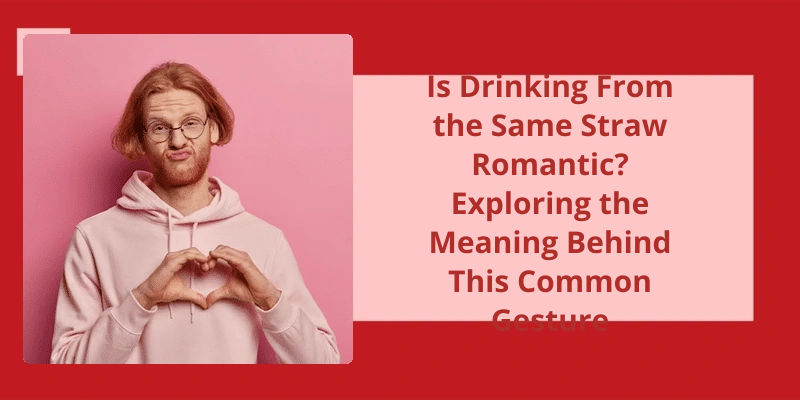There’s a phenomenon that’s been long perceived in the realm of romantic relationships – the notion that some men have a tendency to indulge in expensive gift-giving to woo their significant others. While this may seem like a simple display of generosity or an attempt to impress, there are deeper underlying motivations that are fueling this behavior. Some believe that it’s a mark of the man's financial success, while for others, it’s a way of compensating for a lack of emotional availability. Whatever the reason may be, the trend of lavishing grand gestures upon one's partner continues to persist in modern times, despite it’s potential drawbacks and criticisms.
Why Do People Not Accept Expensive Gifts?
However, there are different reasons why people may not accept expensive gifts even if they share a close relationship with the gift giver. Firstly, some individuals may feel guilty about accepting a gift that’s beyond their means or one that they perceive as an unnecessary expense. They may worry about the implications of accepting such a gift and how it could reflect on their character.
Secondly, personal preferences and values may come into play. Some people may not feel comfortable receiving material objects and may prefer experiences or acts of kindness. They may see expensive gifts as superficial and lacking in sincerity, which could ultimately damage their relationship with the giver.
Whether it’s due to personal values, cultural norms, fear of appearing greedy or inappropriate, or other reasons, it’s important to respect the recipients decision and understand their perspective. Ultimately, genuine acts of kindness, thoughtfulness, and consideration matter more than the monetary value of a gift.
The Impact of Culture on Gift Giving and Receiving
- Culture plays a significant role in determining the type of gifts that are given and received
- In some cultures, gift giving is a highly formalized ritual, while in others it’s a social obligation
- Gifts are often given to establish or reinforce relationships, and to express appreciation or gratitude
- The type and value of gifts given can vary greatly between cultures and social situations
- There can be cultural differences in how gifts are wrapped, presented, and received
- Cultural norms can also influence the expectations and etiquette surrounding gift giving, such as when to give a gift and who to give it to
- Gift giving can be a way of showing respect, honor, or status, and the choice of gift can reflect this
However, it’s important not to jump to conclusions and assume the worst. There could be other reasons why a guy buys you an expensive gift, and it’s important to evaluate the situation carefully before coming to any conclusions.
What Does It Mean When a Guy Buys You an Expensive Gift?
This isn’t always the case, of course. Some guys just enjoy giving gifts and showing their affection in that way. They may not be trying to buy your love at all, but rather just expressing their feelings in the best way they know how. These guys are rare, however, and usually have a long history of being generous and thoughtful.
When a guy buys you an expensive gift out of the blue, it can be a little overwhelming. You may not know how to react or what to say. If you like the guy, you may feel grateful and happy. If you don’t like him, you may feel pressured or uncomfortable. In either case, it’s important to be honest with yourself and with him about your feelings. Dont feel obligated to reciprocate his feelings just because he bought you something expensive.
He may think that by providing for you in this way, youll be impressed by his money and want to be with him. This isn’t a healthy or genuine way to build a relationship, and it’s important to recognize it for what it is. If you feel like someone is only interested in you for your looks or your potential as arm candy, it’s best to move on and find someone who values you for who you are.
In some cases, a guy may buy you an expensive gift as a way of manipulating you or controlling you. He may use the gift as leverage to get you to do things you don’t want to do, or to keep you from leaving him. This is a dangerous situation, and it’s important to recognize the signs of emotional abuse or manipulation. If you feel like someone is using gifts to control you or keep you under their thumb, it’s best to seek help and get out of that situation as soon as possible.
While it’s natural to feel grateful and appreciative when someone does something nice for you, it’s important to be cautious and aware of the underlying motivations. If you feel like someone is trying to buy your love or manipulate you, it’s best to trust your instincts and take steps to protect yourself. On the other hand, if someone truly cares for you and wants to show their affection in a genuine way, thats a beautiful thing and should be cherished.
Source: If A Guy Gives You A Gift, What Does It Mean? (2023)
Receiving an extravagant gift from friends or loved ones can make one feel overwhelmed. However, it’s important to respond and handle the situation gracefully and tactfully. Expressing appreciation and showing a respectful demeanor towards the gift and the giver can make the occasion a positive experience for everyone involved.
How Do You Respond to an Extravagant Gift?
Gift-giving can be a meaningful expression of love and appreciation, but it can also create discomfort in the recipient. When you receive an extravagant gift from friends, you may feel unworthy or guilty, especially if you can’t reciprocate in the same way. However, the best way to respond to an extravagant gift is with gratitude and sincerity. You may feel undeserving or overwhelmed, but remember that your friends gave you a gift out of love and generosity, not obligation or expectation.
One tip to handle an extravagant gift gracefully is to express your appreciation for the thought and effort that went into it. Even if you don’t particularly like the gift or don’t think you deserve it, respect the intentions behind it and thank your friends accordingly. Suppose your friends gave you a luxurious item that you can’t afford or don’t usually buy for yourself. In that case, you can acknowledge their generosity and explain that you’ll cherish the gift and the memories associated with it.
Suppose you receive a grandiose present during a public event or in front of a crowd. In that case, you may feel pressured to show your excitement and gratitude. However, try to keep your composure and avoid making a big scene or drawing too much attention to yourself. You don’t want to embarrass your friends or make them feel uncomfortable or inadequate.
Lastly, when you receive an extravagant gift, it’s essential to reflect on why it affects you so much emotionally. Is it because you’ve low self-esteem or feel guilty about receiving things? Is it because you’ve different values or expectations than your friends? Or is it because the gift reminds you of deeper issues or unmet needs in your life? By examining your feelings and motives, you can grow in self-awareness and enrich your relationships with others.
Dont let material possessions define your worth or your relationships with others. Instead, focus on the love and kindness that inspire gift-giving and express your appreciation in meaningful ways. Remember, the greatest gift you can give your friends is your time, attention, and genuine affection.
When it comes to gift giving, many people wonder whether it’s appropriate to splurge on expensive presents or if it’s better to keep things simple. The truth is, there’s no one-size-fits-all answer to this question. It all depends on factors such as the recipient, the occasion, and the relationship you’ve with the person in question. While receiving an expensive gift can feel great, it’s important to consider whether the recipient will be able to reciprocate the gesture and whether it might make them feel uncomfortable or obligated in return.
Is It Rude to Give Expensive Gifts?
The context surrounding the gift-giving is important, such as the occasion or the nature of the relationship. In some cultures, giving expensive gifts can be seen as a sign of respect and gratitude. However, in other cultures, it can be seen as excessive and showy. So, one can’t generalize the rudeness or appropriateness of giving an expensive gift, without considering the cultural and social norms.
It’s also important to consider the financial status of the recipient. If the recipient is struggling financially, an expensive gift could make them feel guilty or embarrassed, which could consequently strain the relationship. Alternatively, if there’s a significant power dynamic between the giver and recipient, such as in a boss-employee relationship, an expensive gift could create an uncomfortable power dynamic, with the recipient feeling indebted to the giver.
For instance, if the giver is trying to influence the recipients decisions or actions by giving them an expensive present, it could be seen as a form of bribery. This could potentially damage the relationship and be considered rude.
It’s essential to consider the cultural, financial, and social norms when selecting the gift. Moreover, the intentions behind giving the gift must be genuine and honest to avoid any misunderstandings or awkward situations.
The Impact of Social Media on Gift-Giving and the Pressure to Give Expensive Gifts.
- Social media can create unrealistic expectations for gift-giving
- Seeing lavish gifts on social media can increase pressure to give expensive gifts
- People may feel the need to show off their gifts on social media, leading to overspending
- Gift-giving can become a competition on social media, with people trying to outdo each other
- However, social media can also be a helpful tool for finding unique and thoughtful gifts
- It’s important to remember the true meaning of gift-giving and to not let social media influence our choices and behavior
Receiving an expensive gift can be a tricky situation to navigate without seeming ungrateful or obligated to reciprocate. However, there are certain guidelines that you can follow to express sincere gratitude and appreciation towards the person who gave you the gift. It’s essential to understand that every gift carries some significance and holds the potential to teach us humility.
What to Do if Someone Buys You an Expensive Gift?
It’s important to acknowledge the gesture and the sentiment behind it. You can do this by giving the person a heartfelt thank you, either in person, over the phone, or through a handwritten note. This simple act of gratitude can go a long way in showing the person how much you appreciate their kindness and generosity.
However, it’s also important to recognize that an expensive gift can come with some unexpected complexities. For instance, you might feel guilty or obligated to reciprocate in some way – perhaps by buying the person an equally expensive gift or by doing something special for them in return. This can create an uncomfortable dynamic and put unnecessary pressure on both parties.
To avoid this, try to shift your focus to the gift itself rather than the monetary value. Think about what the gift represents and what it means to you. Maybe it’s a symbol of your friendship, a reminder of a shared memory, or a reflection of the givers thoughtfulness and generosity. By appreciating the gift for what it is, you can let go of any expectations or pressure to reciprocate.
If you do feel a strong urge to reciprocate, try to do so in a way thats meaningful and authentic to your relationship with the person. It doesn’t have to be expensive or extravagant – a heartfelt gesture or a simple token of appreciation can be just as meaningful. For example, you could write a personal letter expressing your gratitude and reflecting on your relationship, or you could plan a meaningful outing or experience that you both will enjoy.
Ultimately, the most important thing is to approach the situation with grace, gratitude, and authenticity. Remember that giving and receiving gifts is a natural part of relationships, and that it’s the thought and intention behind the gift that really matters. By focusing on gratitude, appreciation, and authenticity, you can turn a potentially awkward situation into a positive and meaningful experience for everyone involved.
Conclusion
In conclusion, the act of purchasing expensive gifts is a complex phenomenon that extends beyond the surface level gesture of providing a material item to another person. Furthermore, the behavior may stem from a desire to gain recognition or approval from others, or it could indicate a more genuine desire to make someone else feel special. Ultimately, while buying expensive gifts isn’t inherently negative, it’s important to examine the underlying motivations behind the behavior to fully understand it’s implications.






